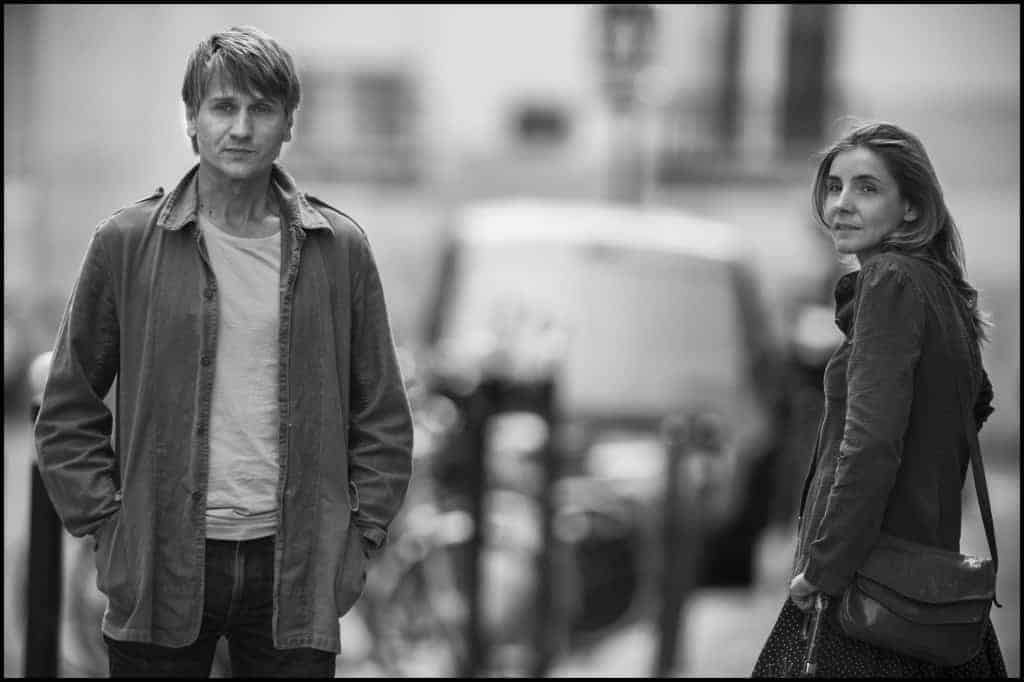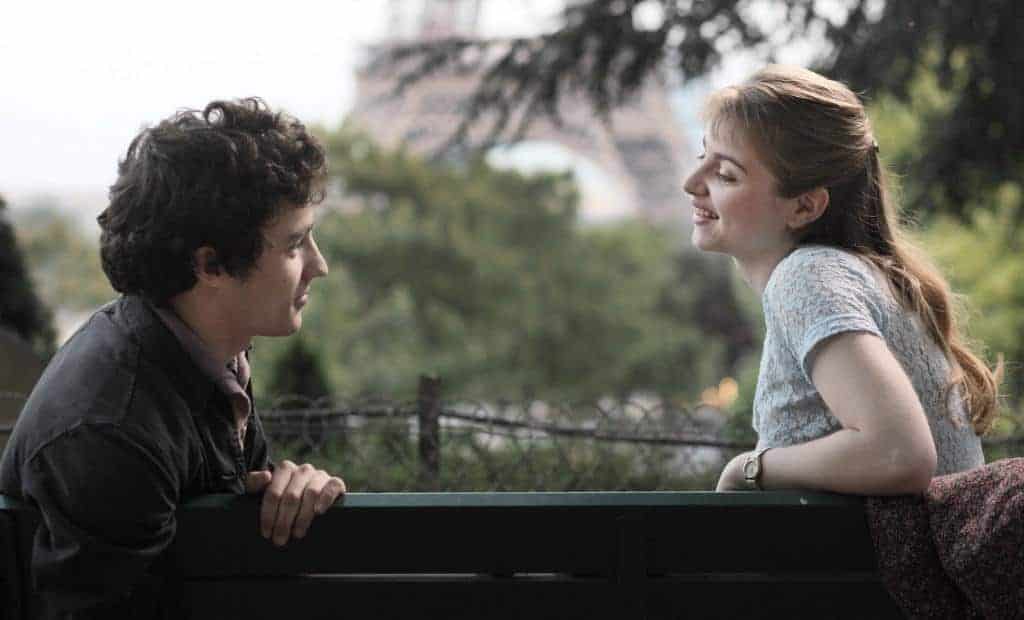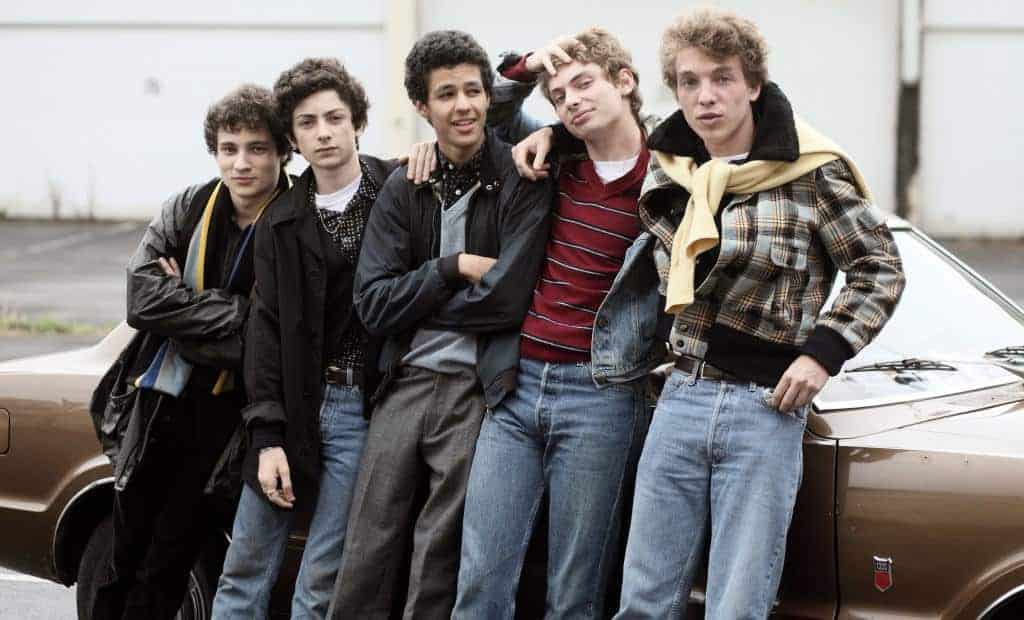Arabian Nights, L’Ombre des Femmes, and Trois Souvenirs de Ma Jeunesse
The Director’s Fortnight and its relationship to the Cannes Film Festival can be a perplexing one. It’s generally considered to be part of the festival — often a stepping stone to admission into the Official Selection — although it’s technically a separate, simultaneous film festival. But films screening in this sidebar by first-time directors are still eligible for the Camera d’Or award, which is given by the Cannes Film Festival itself, and to be accredited to attend Fortnight, you need to be accredited for the Cannes Film Festival.
The Director’s Fortnight was originally started in the ‘60s by Truffaut and others, as both a protest against the Official Selection and a venue to showcase alternative, avant garde programming. This is still its main raison d’être, as well as giving newer filmmakers a platform to showcase their work. But in recent years, filmmakers have used having their film accepted in Fortnight as a bargaining chip to get a better spot in the Official Selection.
Despite screening some of the year’s best films on a regular basis, the Director’s Fortnight tends to be largely ignored by the mainstream media who have good access to the Cannes Official Selection. But it’s the ideal place for those of us at the bottom of the press hierarchy — sporting yellow or blue badges — as Fortnight doesn’t distinguish between different priority levels among press while getting locked out of Official Selection screenings is a regular occurrence for us. The Fortnight, like Critic’s Week, is more democratic: the first people to arrive at the screenings are the first to be admitted, although press and industry do get priority over the public for the first few screenings. Fortnight and Critic’s Week are also the only sections of the festival open to the public at large. You can purchase tickets, which act like coupons, letting you into any screening where space is available.
Although the Director’s Fortnight has never had a dearth of films by great auteurs — last year’s festival featured Frederick Wiseman’s remarkable documentary National Gallery, Céline Sciamma’s terrific coming-of-ager Girlhood, and Isao Takahata’s gorgeous Studio Ghibli film The Tale of Princess Kaguya — this year it’s attracted renowned auteurs whose films we’d expect to see in the Official Competition. The announcement, made on the eve of the reveal of the main festival lineup, that Phillipe Garrel’s latest meditation on infidelity, L’Ombre des Femmes, would premiere in the Director’s Fortnight, as its Opening Night film, was a real coup.
The festival then scored Arnaud Desplechin’s latest coming-of-age film, Trois Souvenirs de ma Jeunesse, which was excluded from the Official Competition because it already had a surplus of French films. Desplechin was offered a place in the much less prestigious Un Certain Regard sidebar, usually a stepping stone for getting into the Competition with some confusing exceptions, but he decided to take the film to Fortnight, instead. Similarly, rumours abound that Miguel Gomes’s Arabian Nights — a three-part six-hour film about contemporary life in Portugal under the austerity policies — was deemed too long for the Official Competition. It was embraced by the more offbeat Director’s Fortnight where it was easily the film with the longest queues.

Female auteurs, and to a degree, stories about women, are few and far between at Cannes. So it’s a shame that what these three films seem to share as a common thread is such a strong male perspective, given that the main festival is already jokingly, if accurately, referred to as the sausage festival. Admittedly, I only saw the first part of Gomes’ Arabian Nights, which I found too alienating and disjointed to invest in four more hours of viewing time plus two more lineups to see the remainder of the film. The film’s anchor and narrator is a woman, Scheherazade (Cristina Alfaiate), who, as in the book, spins tales of the hardships of contemporary Portuguese life to her husband, the King, in an effort to get him to spare her life for one more day so he can hear the story. But its focus still tends to be on men and how they’ve been affected by or perpetrators of the austerity policies. Scheherazade may be the sage chronicler, but she’s still a victim.
Each of the Arabian Nights films tells three tales, each based on real stories collected by journalists and then filtered through the film’s screenwriters (Telmo Churro, Miguel Gomes, and Mariana Ricardo) to create a fictionalized account. The first one is about male politicians who, in exchange for implementing policies that prove brutal to the average citizen, are granted magical, forever-lasting erections. As it turns out, they also have their downsides. It’s such a silly, absurd, and frank way of looking at the situation and male power that it’s funny and astute. But it’s also a bit crass and serves as a further reminder that this is, in fact, the sausage festival. Equally, the first-hand accounts from recently laid off shipyard workers that open the film, are also all from men, again focussing on just a small portion of the population.
Arabian Nights Part 1 is as inventive as it is alienating. I found myself tuning out every few minutes, only to be brought back into the fray with newfound excitement thanks to a great musical cue or amusing scenario. The song that plays against the opening credits and the images that accompany it have stayed with me more than many films at the festival. It’s also admirably meta. Gomes frequently talks into lens, worrying about how he can possibly realize his vision for the film. At one point, he even runs away from the crew in terror, and we watch the crew scramble to keep up, as the camera chases after him down the hallway. There’s even a scene at the beach where we find the director and crew members buried neck deep in sand, as if in Beckett’s Happy Days.

Surprising absolutely no one, Phillipe Garrel’s L’Ombre des Femmes is about the joys and consequences of extramarital affairs. Pierre (Stanislas Merhar, a bit of a brick wall) is a documentary filmmaker making a film about a French resistance fighter, and his wife Manon (Clotilde Courau, stunning and open) works as his assistant. Despite an amicable relationship, they seem to have lost the charge that once ignited them. Garrel repeatedly shoots Pierre pondering silently in a frame by himself, away from Manon. When Pierre meets a young archivist (Lena Paugam), they begin an affair. But two women may be more than Pierre can handle: his new lover is too attached. She surreptitiously follows him to get a glimpse into his life, and in so doing, discovers Manon is also having an affair, which is news she just can’t keep to herself.
Garrel finds humour here in dated stereotypes. Pierre can’t believe his wife would dare cheat on him, and his sheer bafflement at the fact that women actually have agency leads to some uncomfortable laughs. They’re uncomfortable in part because the film seems nearly as surprised as Pierre at this revelation, only lightly poking fun at Pierre.
As in Jealousy, the affairs ultimately only bring misery. Pierre and Manon prefer to be together, but can only find their way back to each other after cheating, heartbreak, and despair. Where Jealousy was insightful about the ways in which jealous people take out their aggressions on others and how financial worries can taint even the purest love, L’ombre des Femmes offers little psychological insight.
The film is a trifle, but a gorgeous one to behold. Shooting in black and white on 35 mm — because it’s cheaper — Garrel composes exquisite frames, whether it’s a two-shot of a couple interacting or merely capturing the characters in the scenery. It gives the film a timeless quality, helped by the fact that the only intrusion from modern technology is a cell phone. It recalls the aesthetic of the French New Wave, but the subject matter, by this point in time, is tired.

Arnaud Desplechin’s skillful, inventive, passionate, and joyful filmmaking in Trois Souvenirs de Ma Jeunesse, an intensely personal film, is usually enough to distract from its troubling treatment of female characters. We find a middle-aged Paul Dédalus (Mathieu Amalric who played the same character in Desplechin’s 1991 film Ma Vie Sexuelle) reflecting on three key events from his childhood and adolescence, in chronological order, each story longer and more involved than the last.
The first finds Paul as a young boy caught between his cruel mother and his abusive father: he prides himself on being able to take a beating without feeling pain. It’s a highly stylized tale with muted, grey colours and the occasional out-of-focus blur of a fading memory. The second, more elaborate tale is about sixteen-year-old Paul’s (the enormously talented and charismatic newcomer Quentin Dolmaire) class trip to Russia in the late 1980s, where he foolishly and kindly gave his passport to a group of Jews trying to escape to Israel.

But it’s in the third and longest segment where the film’s heart really lives. The episode surges with energy, opening with a series of split screens chronicling Paul’s adventures with his friends in his hometown set to rock music: the colours are also warmer and richer, with reds, blues, and yellows, especially standing out. It perfectly captures the spirit of youthful exuberance, from the joy of driving around town in a car full of friends to the boredom that small town life can equally bring.
Having moved to Paris to study anthropology in university, Paul occasionally returns to his hometown to see his friends and siblings and before long, his sweetheart, the beautiful blonde Esther (Lou Roy-Lecollinet), who is still in high school. Esther is the object of every boy’s affection, and she knows it. But she admires Paul’s bashfulness, openness, and witty remarks. The film chronicles their relationship, which starts as a sweet and tentative first love and lasts years until it exhausts them both.
Desplechin shoots their courtship and love scenes with remarkable tenderness. In the beginning, Paul can hardly believe Esther has taken an interest in him. Desplechin makes her seem elusive and unattainable by having her speak in tight closeups with deep red lips, as if she could be talking to anyone, but mesmerizing enough to allow Paul to believe she’s only talking to him. As the years wear on, the long distance relationship takes its toll. They each take lovers to fill the absence, a particularly painful fact for Paul as Esther often chooses his closest friends. Paul becomes increasingly invested in his studies and future while Esther has little ambition but to be with him: her dependence on him is burdensome.
It’s here that their relationship becomes distasteful. The more we see Paul succeed academically, the more it seems that his only interest in Esther is for her looks and the status that gives him. Esther proclaims she’s stupid in a blasé fashion, and Paul responds, excitedly, that he doesn’t like smart girls. He’s being serious, too, and I started gagging. Worse, Esther is set up as a fantasy and a cypher, without explicitly dealing with how that’s problematic. Yes, we remember things from our youth with nostalgia and romanticism, but Esther seems wholly without agency or personality, aside from the fact that she’s headstrong and willing to give boys a hard time. Years later, Paul is still under Esther’s spell: she’s the one that got away that he never got over. By the end, he seems pathetic, and she seems like an insulting version of the idealized woman.

Given how much Esther’s body is worshipped by the camera, from her milky nude skin to her golden hair set against her red coat and red lips, it starts to feel more like objectification than merely a conduit for Paul’s lustful admiration. While the film is thoroughly engaging and beautiful throughout, the mark of a gifted craftsman, its problematic ideas about men and women become harder to overlook. The sheer excitement I felt at the beginning of the story of Paul’s first love was replaced by frustration by the time it was through — terrific filmmaking lavished on a story that’s so very outdated.

